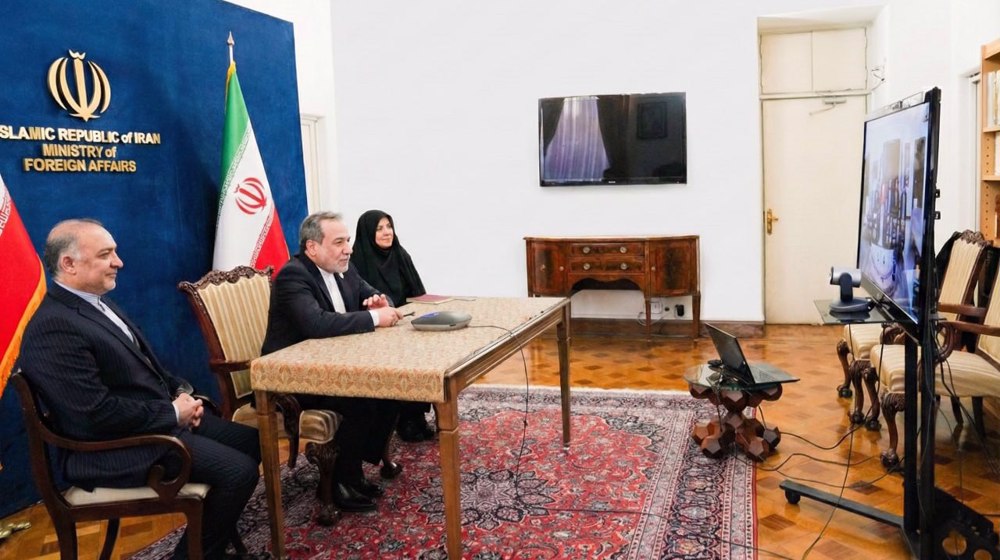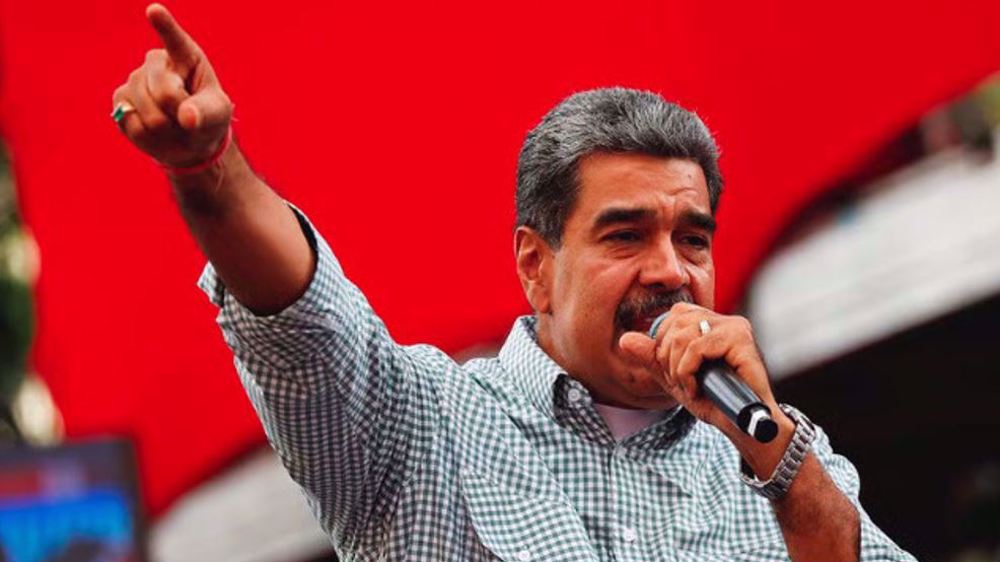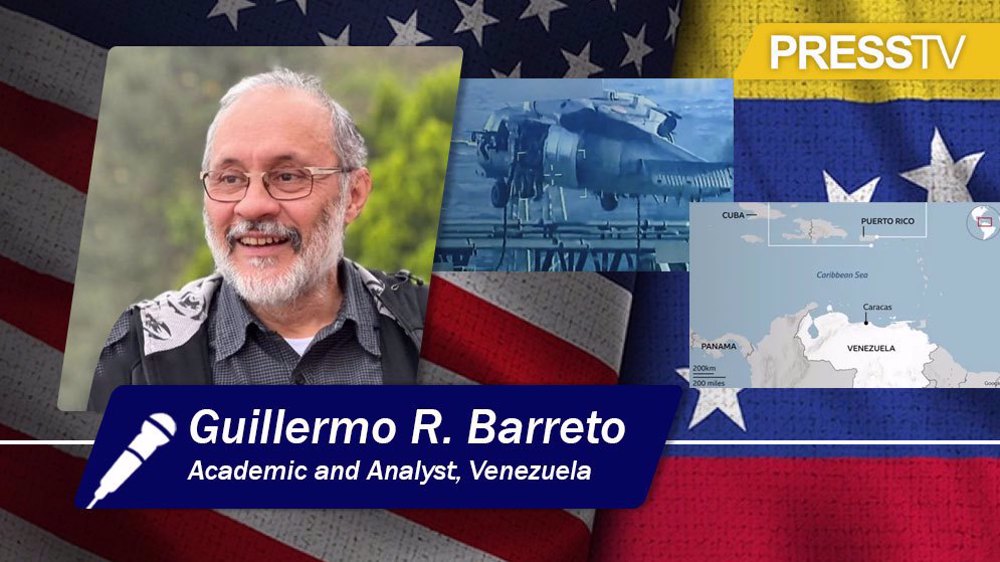US allegation of Venezuela’s narco-terrorism ‘more than nonsense’: Analyst
US accusations of narco-terrorism against Venezuela are “more than nonsense” and rooted in longstanding animosity toward the Latin American country, says an American political analyst.
The US State Department on Thursday accused Venezuelan President Nicolas Maduro and several of his close allies of drug trafficking and put a reward for information that could lead to their arrest.
The charges come as Venezuela is already grappling with sweeping US sanctions on its oil industry as well as the challenges it is facing in its bid to contain the novel coronavirus outbreak.
Michael Springmann, a Washington-based author and former US diplomat in Saudi Arabia, dismissed the accusations “more than nonsense” as he hit out at American leaders on Press TV’s "The Debate" program.
“They simply don’t want to deal with reality; they want to give their fantasies to the American people who are unfortunately quite willing to accept, just as they accept the nonsense being passed about the coronavirus,” he said.
Asked about the type of a government desired by the US in Caracas, Springmann said the Americans favored a “pliable dictatorship” and that their recognition of Venezuela’s opposition figure Juan Guaido as the so-called president of the South American country was to that end.
“What the Americans want is simply another pliable dictatorship that is capitalist-oriented, just not like socialism, not wanting to help its own people, very much like the American government that has no concern at all for the aged fellows in the streets. They simply want the overthrow of a government that caters to the needs of the people rather than the needs of the oil barrels and the corporate state,” the former US diplomat said.
“This ridiculous business of recognizing Guaido as president of Venezuela, while he never stood for election, is unbelievable except to the case that the United States backs all sorts of would-be dictators or actual dictators,” he added.
Guaido abruptly declared himself “interim president” of Venezuela in January last year, challenging the outcome of the 2018 presidential election which Maduro had won. Guaido later launched an abortive coup against the elected government.
Guaido’s self-proclamation as president and his coup received full support from Washington. Since then, the administration of US President Donald Trump has been escalating tensions against oil-rich Venezuela, and has not ruled out the military option to take out Maduro’s government.
Danny Shaw, professor of Latin American and Caribbean studies who was the other panelist on the program, censured the US allegations against Maduro as “ridiculous and aggressive and brazen even by imperialist standards.”
Shaw described the US government as “one of the biggest importers and exporters of drugs,” and said it was “arrogant and absurd for the US to continue to want to dictate what happens in Venezuela at the height of the coronavirus.”
Asked whether the allegation of narco-terrorism was a US ploy to oust Maduro, the academic said, “When direct control does not work, they resort to neocolonial indirect control” by using their puppets and lackeys. “Guaido should be ashamed to be a US puppet."
As the coronavirus epidemic spreads in Venezuela, the country faces the challenge of controlling the outbreak despite the current US blockade, which has significantly battered medical services.
Earlier in the month, Maduro sent a letter to the International Monetary Fund (IMF) and requested $5 billion in order to fight the coronavirus pandemic. The US-based organization, however, refused to take into account the humanitarian nature of the request and denied Caracas the funding.
The Venezuelan government has started the implementation of a nationwide quarantine to slow the pace of its coronavirus outbreak, stating that the strategy is to make all citizens stay home and prevent infected people from passing the virus to others.
Maduro explained that the strategy has been taken in accordance with measures recommended by the World Health Organization as coronavirus cases in Latin America surpassed 10,000 on Friday.
The novel coronavirus, which causes a respiratory disuse known as COVID-19, emerged in the central Chinese city of Wuhan in December, incrementally infecting some 185 countries across the world.
More than 598,000 people worldwide have so far been infected with the virus and over 27,000 have died, according to a running count by worldometers.info.
Mali, Burkina Faso impose reciprocal travel bans on US citizens
VIDEO | Winter deepens suffering of displaced families in northern West Bank camps
Probe reveals suspiciously ‘precise’ Israeli airstrike killed 15 family members in S Gaza in 2024
VIDEO | Trump, Netanyahu against Iran
UNRWA chief warns Israeli restrictions will deepen Gaza crisis
China's factory activity snaps record slump
VIDEO | Iranians rally in support of Islamic Republic
Israel begins demolition of 25 homes in West Bank refugee camp












 This makes it easy to access the Press TV website
This makes it easy to access the Press TV website